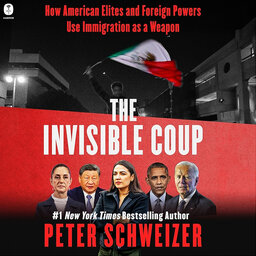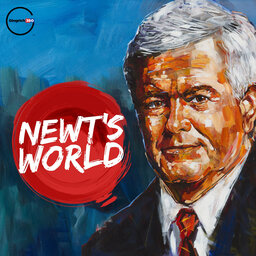Episode 743: In the Room with Reagan and Nixon
In his new book, “Behind Closed Doors: In the Room with Reagan and Nixon,” Ken Khachigian offers a compelling insider’s account of his most private moments with Ronald Reagan and Richard Nixon during revolutionary changes in our economy, politics, communications, foreign policy, and culture. Newt’s guest is Ken Khachigian. He was the chief speechwriter and trusted political adviser to President Ronald Reagan. He also served in President Richard Nixon’s White House.
In 1 playlist(s)
Newt's World
Join former House Speaker, professor, historian, and futurist Newt Gingrich as he shares his lifetim…Social links
Follow podcast
Recent clips

Episode 948: ‘Moneyball’ for Politics
30:34

Episode 947: Will AI Take My Job
28:22

Episode 946: Peter Schweizer on “The Invisible Coup”
34:50
 Newt's World
Newt's World